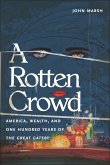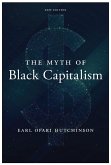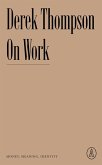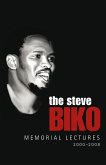This book is openly available in digital formats thanks to a generous grant from the Andrew W. Mellon Foundation.
Many of today's insurgent Black movements call for an end to racial capitalism. They take aim at policing and mass incarceration, the racial partitioning of workplaces and residential communities, the expropriation and underdevelopment of Black populations at home and abroad. Scholars and activists increasingly regard these practices as essential technologies of capital accumulation, evidence that capitalist societies past and present enshrine racial inequality as a matter of course.
In Prophet of Discontent, Andrew J. Douglas and Jared A. Loggins invoke contemporary discourse on racial capitalism in a powerful reassessment of Martin Luther King Jr.'s thinking and legacy. Like today's organizers, King was more than a dreamer. He knew that his call for a "radical revolution of values" was complicated by the production and circulation of value under capitalism. He knew that the movement to build the beloved community required sophisticated analyses of capitalist imperialism, state violence, and racial formations, as well as unflinching solidarity with the struggles of the Black working class. Shining new light on King's largely implicit economic and political theories, and expanding appreciation of the Black radical tradition to which he belonged, Douglas and Loggins reconstruct, develop, and carry forward King's strikingly prescient critique of capitalist society.
Many of today's insurgent Black movements call for an end to racial capitalism. They take aim at policing and mass incarceration, the racial partitioning of workplaces and residential communities, the expropriation and underdevelopment of Black populations at home and abroad. Scholars and activists increasingly regard these practices as essential technologies of capital accumulation, evidence that capitalist societies past and present enshrine racial inequality as a matter of course.
In Prophet of Discontent, Andrew J. Douglas and Jared A. Loggins invoke contemporary discourse on racial capitalism in a powerful reassessment of Martin Luther King Jr.'s thinking and legacy. Like today's organizers, King was more than a dreamer. He knew that his call for a "radical revolution of values" was complicated by the production and circulation of value under capitalism. He knew that the movement to build the beloved community required sophisticated analyses of capitalist imperialism, state violence, and racial formations, as well as unflinching solidarity with the struggles of the Black working class. Shining new light on King's largely implicit economic and political theories, and expanding appreciation of the Black radical tradition to which he belonged, Douglas and Loggins reconstruct, develop, and carry forward King's strikingly prescient critique of capitalist society.
Dieser Download kann aus rechtlichen Gründen nur mit Rechnungsadresse in A, D ausgeliefert werden.









